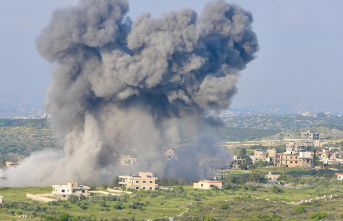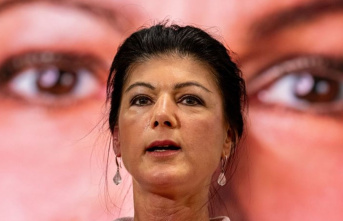The white farmers, the Zimbabwean government has removed nearly 20 years ago, their farms, waving a late satisfaction: on Average, each of the more than 3500 Affected, which have applied to be, with the equivalent of approximately 850,000 euros in compensation. Compensated companies, real estate, and other assets that were on the land of the peasants, which at that time owned by the state should be in order. After long negotiations, have reached an agreement, the negotiators of the government and the builders Association, "Commercial Farmers' Union" (CFU) on a total of almost three billion Euro Deal. The first half of the sum will flow within a year, the rest of the payments will be stretched to five years.
President Emmerson Mnangagwa said it was a "historic occasion", CFU-President Andrew Pascoe has even been called a "miracle". Less euphoric, the Zimbabwean Analyst and policy Advisor, Alex Magaisa, who teaches at the University of British Kent responded. Although to be successful, the first step is to mark the end of the Chapter in the country to consider reform, said Magaisa. But: "ten, 15 years, would be the subject of compensation have been much further up the priority list. Today it is one of the most pressing problems."
A step out of Isolation?Due to the land reform and the sometimes violent expulsion of about 4000 white farmers of Zimbabwe had lost a lot of international confidence. In the process, Zimbabwe was considered after its independence in 1980, first as a hopeful antidote to the neighbouring Apartheid South Africa. However, by the increasingly aggressive and authoritarian appearance of hero of the Revolution and the long-time ruler Mugabe, it is isolated in terms of foreign policy more and more. On the brutal land reform between 2000 and 2003, the United States and the EU responded with sanctions against a number of Zimbabwean individuals and companies, which are in part up to today. In addition to policy mistakes in the country, the declining investment contributed to the willingness abroad to the economic decline.
With the agreement in the hope of counteracting this Trend is increasing, "I believe that the compensation sends a clear and unequivocal message to local and foreign investors that Zimbabwe truly is open for business," says CFU-chief of Pascoe in the DW-Interview. He repeated the Mantra of the Mugabe successor, Mnangagwa, whose balance sheet is lagging so far behind the to office, the expectations that The economic crisis is taking on ever more threatening proportions, the currency is in free fall. Millions of Zimbabweans are starving, also because derZyklon Idai over a year ago and a subsequent drought for the scanty Harvests have taken care of. The Corona-pandemic: The increase in the official number of cases - currently just over 3000, has accelerated recently.
human rights and verbally failuresAlex Magaisa says that the compensation agreement would send an "interesting Signal" to the West. In view of the many other problem areas, he does not believe, however, that Zimbabwe can bring to the relationship as progressing as hoped: "We have referred heard in the week of the Convention, also very vulgar Statements from the ranks of the government party Zanu-PF, the US Ambassador as a 'Gangster' ('thug') and he was threatened with expulsion. The are no confidence-building measures."
for a long time Already the situation for critics and political opponents of the Zanu worsens-PF: After more than 60 kidnappings in the past year, human rights activists always complain more wrongful arrests on flimsy grounds. Recently, several journalists have been imprisoned since March, more than 105,000 people were temporarily arrested because they were allegedly in breach of Corona limitations.
Who should pay?trust is important for the government internationally as well as in their own country. Finally, it must be the fault of Zimbabwe, in order to compensate the farmers. "It is difficult to find funding for it," says Alex Magaisa. "And if someone is willing, then, to expensive conditions, the interest rates will be very high. This will be expensive and thus problematic for the Zimbabwean taxpayer."
in the end, it is unfair, the impoverished population of this compensation burden - instead of the minions of the Zanu-PF, which at the time of the functioning of farms with seeds and farm animals were attributed to: "they are the ones who should pay the compensation to the white farmers," said Magaisa.
A Central Problem remainsthere are, However, of the assets of the farms, not much is often left Because the estate passed into the ownership of the state, and today's farmers rent their land only, you lack collateral that you can put in the banks for loans behind. "The entire ownership structure was turned on its head. This has influenced the financing model for agriculture,” said Magaisa. Meanwhile, the government maintains a number of programmes to keep the farmers liquide which in turn is polluting the public funds, and corruption favored.
"The real problems are the droughts and other conditions in the fields, but how to take advantage of the country's best - as the best people in the country and how agriculture is financed," said Magaisa. These questions remain, 20 years after Robert Mugabe's "fast track land reform" to continue unresolved.
employees: Columbus Mavhunga
author: David Ehl,
*The post "Zimbabwe to compensate white farmers with billions" published by Deutsche Welle. Contact with the executives here.
Deutsche Welle Date Of Update: 31 July 2020, 11:27










